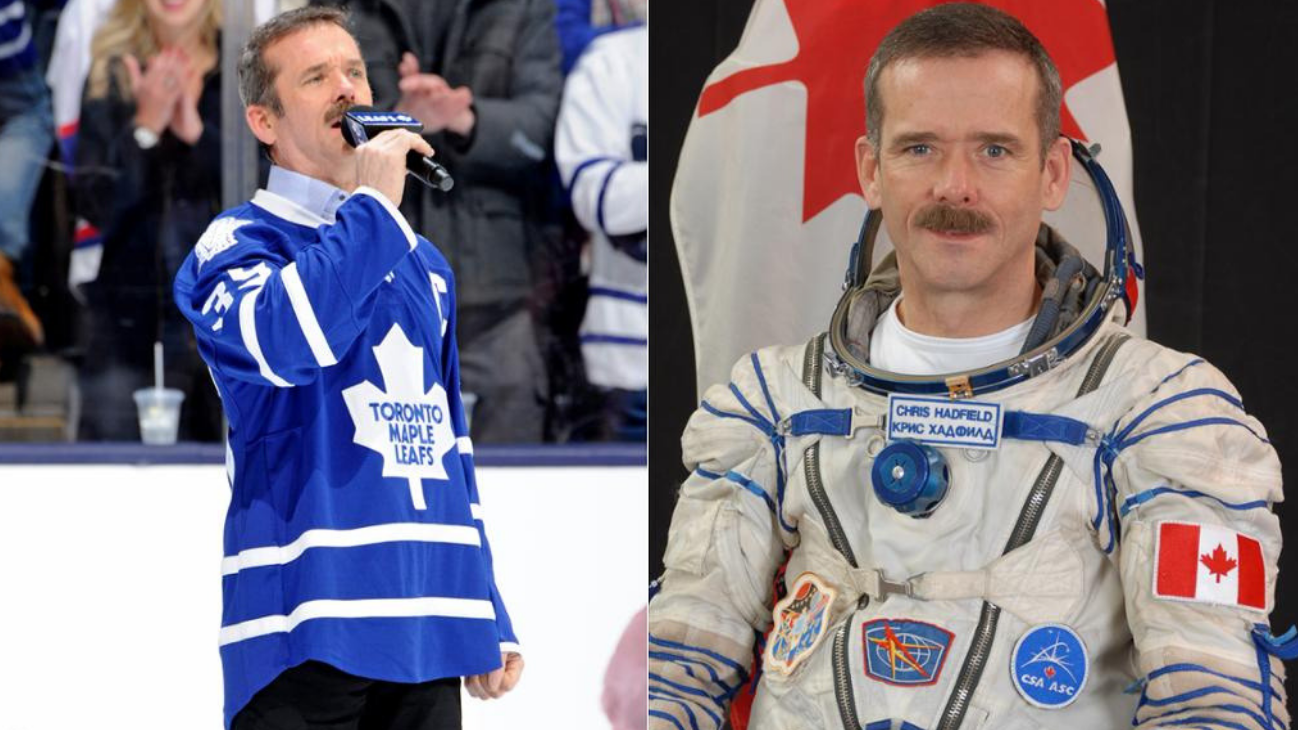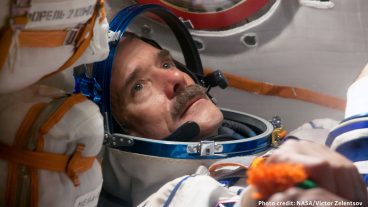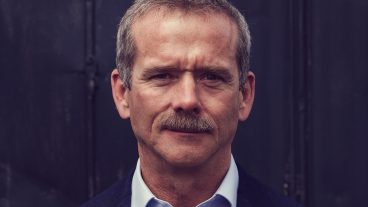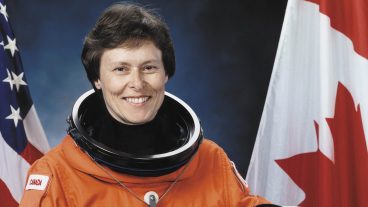Is Colonel Chris Hadfield as passionate about the Toronto Maple Leafs as he is about space? You tell us! In a fun interview, he spoke with NHL.com for their Q&A feature “Five Questions With…” after being named an honorary member of the NHL Alumni Association at its annual awards gala in Toronto on October 22.
Whether on Earth or more than 400 kilometres above it, Colonel Hadfield has always been an avid fan of hockey and specifically the Toronto Maple Leafs. Below is a few highlights from his interview, read the whole piece here.
Three times you were launched into space, twice on the space shuttle, once aboard the Soyuz to the International Space Station. Twice you’ve walked in space, the first Canadian to do so, and you sang “O Canada” at Scotiabank Arena before the Maple Leafs-Montreal Canadiens game on Jan. 8, 2014. Compare the stress levels?
The most dangerous thing I’ve done in my life is fly three rocket ships, by far. Risk of death per second outstrips anything else, by far, so that puts everything else in perspective. Spacewalks are dangerous but they’re also wonderfully rare and amazingly beautiful. You feel like you’re just witness to tremendous privilege, doing a spacewalk. You know the risks are higher. But a launch? That’s crazy. Singing the national anthem? That’s just a joy, just fun. There’s no risk to that at all. You’re just going to join 20,000 people singing the anthem. That’s a great moment. Everyone should get the chance to do that at a Leafs-Canadiens game here in Toronto.
Many talk about the fury and intensity of a Stanley Cup Playoff game, and the energy in an arena when the home team wins. Is there any way any of us can comprehend the raw power and brute energy of a rocket launch?
No. Because the more you know about what’s happening around you, the more you understand the incredible risk that’s involved, the power that’s needed and therefore the attempt to harness that power. The craziness of it. The willingness to take a tremendous personal risk in order to put yourself in a position to accomplish something that you think is infinitely worthwhile. To me that’s the very essence of life. But very few people willingly step into that type of risk as part of their job. It’s maybe best measured by the fact that when we go to work and climb into a spaceship and launch from the Kennedy Space Center in Florida, half a million people would come to watch government employees do their job. (laughs)
Astronauts are not thrill-seekers at all. We are people who are willing to take a very carefully considered and highly measured risk in order to accomplish something that otherwise would be impossible. You are intensely aware of the unbelievable power of this machine that’s around you. You can feel it viscerally. You cognitively know it from all of your years of preparation and you have a huge part in flying it, and in saving your own life if things go wrong, but the straight Tyrannosaurus rex jaw’s shaking of you, the sense that you are so tiny in an enormity of power, you really get a feeling of being dwarfed by the unforgiving, uncaring power of this thing. It’s an interesting place to be.
You returned to Earth from the International Space Station in a crew of three most recently May 13, 2013, undocking in the Soyuz capsule one minute after puck-drop in Game 7 of the Eastern Conference First Round series between the Boston Bruins and the Maple Leafs. During your re-entry, Toronto would go up 4-1 early in the third period but ultimately lose 5-4 in overtime. You touched down in the steppes of Kazakhstan 26 minutes after Patrice Bergeron’s winning goal was scored. If the Leafs are eliminated while you’re not on Earth and out of radio contact, does it count?
(Laughs) The Leafs also went down in flames that night. I knew the game was going on and I listened to the preamble before I got in the Soyuz. But I was the pilot. It’s a huge task, there’s all sorts of things we have to do to safely get back to Earth. I hadn’t flown the Soyuz in five months so you’re really focused. But in the back of my mind I was thinking about the Leafs. I also wondered, ‘How can I best support my Leafs while I’m doing this?’ So under my Russian spacesuit I was wearing my Leafs T-shirt, which is completely against the rules but I figured it’s the best I could do. Just like all those players, I was sweating into my T-shirt coming down, hoping they’d do OK.
We came thumping down on a windy day into the plains of Kazakhstan, the vehicle rolls to a stop, I’m hanging from the ceiling, they roll it the right way, I’m the third and last to come out, after Tom (Marshburn) and Roman (Romanenko). You can walk OK but they carry you because they want to prolong your adaptation as long as possible so they can gather as much medical data as they can, and that’s fine. They plunk me down in a chair, give me a cup of tea, loosen my collar and then they hand me a satellite phone to talk to my wife and tell her I was OK. I said, “Helene, how are you? I’m back, it all worked out great.” She said, “That’s wonderful.” I said, “How did the Leafs do?” And she said, “Oh, I’m sooooooo sorry.” Oh well. So be it.
Referred to as “the most famous astronaut since Neil Armstrong,” Colonel Chris Hadfield is a worldwide sensation whose video of David Bowie’s “Space Oddity” — seen by over 75 million people — was called “possibly the most poignant version of the song ever created”, by Bowie himself. Acclaimed for making outer space accessible to millions, and for infusing a sense of wonder into our collective consciousness not felt since humanity first walked on the Moon, Colonel Hadfield continues to bring the marvels of science and space travel to everyone he encounters.
Interested in learning more about Colonel Hadfield and what he can bring to your next event? Email us at [email protected].




